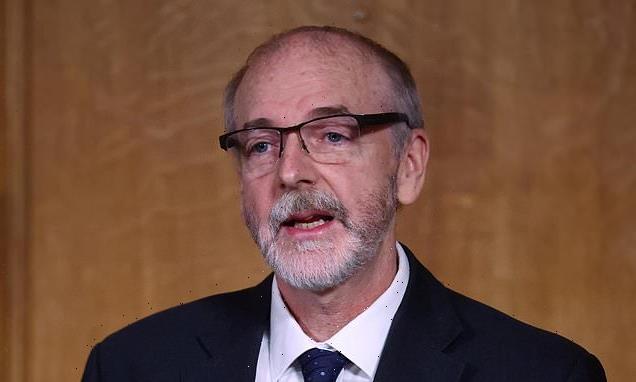Written by Hollie Richardson
Hollie is a digital writer at Stylist.co.uk, mainly covering the daily news on women’s issues, politics, celebrities and entertainment. She also keeps an ear out for the best podcast episodes to share with readers. Oh, and don’t even get her started on Outlander…
With the housing crisis disproportionately affecting women before the pandemic even started, what does the recent lifting of the eviction ban really mean for women who privately rent their homes?
Our homes have been our lifelines more than ever before during the pandemic. We’ve spent three lockdowns staying indoors. Many of us have turned living rooms into home offices. And, at a time when everything else has seemed so uncertain, home has been a safety blanket. For so many others, however, home has just been another source of worry.
The large number of redundancies made over the last 18 months has left some people unable to pay their rent. Those in flat shares have had to navigate quarantine while living with people they might not know very well. Charities have seen an increase in domestic abuse reports. And a study found that nearly half of young people surveyed were only two pay cheques away from becoming homeless.
In those first few months of the pandemic, the government responded by setting out plans for emergency legislation to protect private and social renters from eviction (although it’s worth noting that mortgage breaks for homeowners were announced before this).
Tenants were given more protection from eviction, which included a pause on evictions from being enforced by bailiffs in the rented sector. This eviction ban in England has been extended several times, but it finally came to an end on 31 May. Bailiffs are able to enforce evictions again, unless someone in the property has Covid-19 symptoms or is self-isolating. In addition, landlords now only need to give four months’ notice of eviction, rather than the six months that has been required during the pandemic.
The Joseph Rowntree Foundation has said that, since the eviction ban ended, about 400,000 renters have received eviction notices or been told to expect them. Considering that women have always been hardest hit by the housing crisis (they are more likely to need to flee from domestic abuse, claim benefits, and have lower incomes), it’s likely that they will be disproportionately affected by the lifting of the eviction ban.
“We are facing an unprecedented housing emergency, and women who rent privately are feeling the impact,” Polly Neate, chief executive of Shelter, tells Stylist. “As the pandemic hit jobs and incomes, many women have found themselves relying on housing benefit for the first time. Women already account for 61%* of housing benefit claimants in private rentals. These payments often aren’t enough to cover the rent, and more and more women will be falling into rent arrears and facing eviction.
“Shelter research also shows women are more likely to be affected by unlawful ‘No DSS’ practices – when landlords or letting agents refuse to rent to someone receiving housing benefit – making it harder for women to find a new home if they are evicted. This discrimination and a chronic lack of homes they can afford means thousands of women are left facing impossible choices to keep a roof over their head.”
Stylist spoke to one woman impacted by the lifting of the eviction ban to find out exactly what the reality of this situation is.
Anonymous mother-of one, 24, Dudley
“Last year, my privately rented home was in severe disrepair and my landlord refused to fix it. I couldn’t even let my four-year-old daughter play out in the garden because of the extremely dangerous wall in it. I was on the phone to the estate agent and she told me that my landlord wasn’t going to go ahead with the repairs. Instead, he intended to serve me a Section 21 eviction. I burst out crying, my entire world fell apart.
“I’d already been in contact with my local council. They’d made me aware that there was a very limited time period in which the landlord could grant an eviction because of the eviction ban that had been temporarily put in place because of the pandemic. But my landlord was lucky in this case: because of the timings, the eviction still stood.
“I went straight to Shelter, who told me it was probably a retaliatory eviction (when a landlord tries to evict a tenant because they ask for repairs or complain about poor conditions). I contacted the council again to speak with the retaliatory eviction specialists, who looked at all the evidence and also believed it to be a ‘revenge’ eviction. The health and safety officer got involved and found a further 44 repair issues within the property, including ‘danger to life’ hazards.
“The case went to court in June. I’d spent six or seven months looking for other properties while living here. I applied for around 25 properties and was rejected for all of them. I have a clean credit record, I don’t owe any money and I don’t have debts. I’ve never been late paying my rent. But because I’m a DSS tenant, I’ve found it extremely difficult to get a property, even with a guarantor. That left me in a position, four weeks before court, of having to register with the council as homeless so that, if the judge did approve the eviction, they would provide emergency shelter for me and my daughter. Otherwise, we wouldn’t have had anywhere to live.
“I won the case, but my house remains highly hazardous. I haven’t spoken to the landlord since court. Trying to get him to come and sort anything out has to constantly be done through the estate agent because he doesn’t want to interact. He doesn’t tell me he’s booked someone to come around and look at an issue until they are stood knocking on the door.
“It’s not my home anymore, because I know I’m going to have to leave now. When it comes to getting my deposit back, I think my landlord is going to act really difficult because he’s had to pay out an awful lot in court fees and repairs. I am aware that, because of the end of the eviction ban, as soon as my six-month-protected tenancy is up he’s going to go straight down the route of taking me to court and getting the house back.”
Shelter is calling for the government to give renters in ‘Covid arrears’ a financial lifeline to stop them becoming homeless this year. Neate says that “to really tackle the housing emergency they need to invest in many more of the genuinely affordable social homes we so desperately need.”
If there’s one thing the pandemic has taught us all, it’s that everyone deserves a home to feel safe in. This precarious way of living needs to end.
You can find more information and advice on the eviction ban at the following websites:
- Shelter
- Citizens Advice
- Joseph Rowntree Foundation
Images: Getty
* excluding couple households and excluding Universal Credit claims as these cannot be analysed by gender.
Source: Read Full Article



